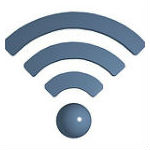 African-Americans and Latinos are more likely to use public Wi-Fi networks and use them more often. Furthermore, they report more in the way of positive impacts from public Wi-Fi use than their Caucasian counterparts, according to a new study from WifiForward conducted by the GfK Group.
African-Americans and Latinos are more likely to use public Wi-Fi networks and use them more often. Furthermore, they report more in the way of positive impacts from public Wi-Fi use than their Caucasian counterparts, according to a new study from WifiForward conducted by the GfK Group.
African-American and Latino Wi-Fi users and African-Americans and Latinos in general were more likely than other groups to say that the Internet “has a beneficial impact on education, saving time, and searching for jobs,” according to a WifiForward news release.
According to WifiForward: “The findings reported today should guide policymakers to continue to improve the environment for wireless Internet use, making more spectrum available for both licensed and unlicensed uses, like Wi-Fi.
“This includes making more spectrum available — and sharing what we already have — at low, medium and high spectrum bands because each band offers different opportunities for Wi-Fi.”
Public Wi-Fi and Minorities
All Internet users responding to the survey said they were more likely to use Wi-Fi at home as opposed to a wired connection. African-Americans and Latinos were found to make more use of Wi-Fi networks in public places.
A majority of wireless Internet users have used public Wi-Fi networks, such as schools, public libraries, a local community center or a municipal or publicly available commercial Wi-Fi network, says WifiForward’s “Communities & Wi-Fi” report. African-American and Latino Internet users were more likely than their white counterparts to have done so, and to have done so more often.
In addition, survey results show that African-Americans and Latinos are much more likely than whites to use smartphone data plans very often when venturing online. Latinos, moreover, report using smartphones more than any other device when accessing public Wi-Fi networks.
One-third of Latinos and 29 percent of African-Americans use public Wi-Fi to access the Internet, which explains why public Wi-Fi access “plays a larger role for communities of color,” WifiForward notes.
“The study’s findings confirm earlier surveys showing that Latinos and African Americans, particularly those who are middle- and lower-income, are much more likely to rely on smartphones and other mobile devices for their primary access to the Internet,” commented Michael Calabrese, director of the Wireless Future Project at the New America Foundation’s Open Technology Institute.
“It’s not surprising that a substantially higher percentage of these folks actively seek out free or inexpensive Wi-Fi connections, depending on a mix [of] licensed and unlicensed spectrum for ubiquitous, wireless Internet access.”


